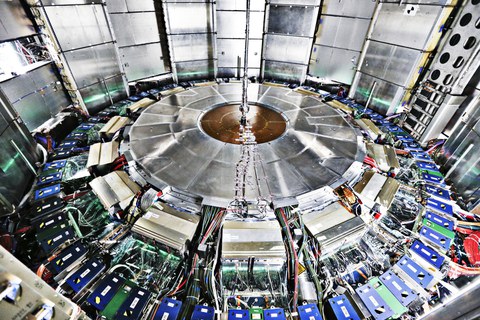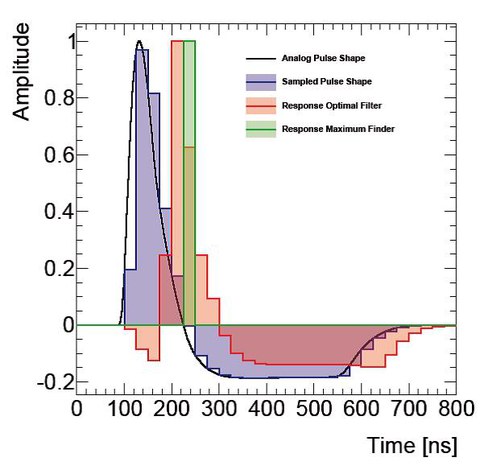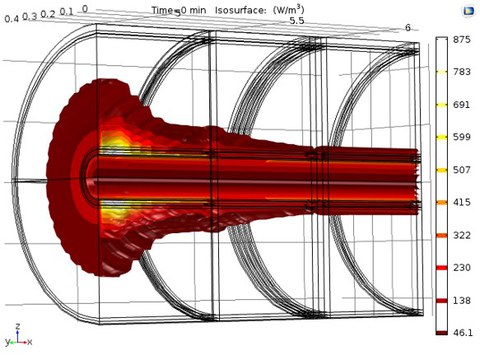ATLAS Detector Upgrade
Development of readout and trigger electronics for the ATLAS Liquid Argon Calorimeters
Our research group is working on the development of off-detector electronics for the digitial signal processing of the ATLAS LAr Calorimeters. The signal processing is based on high-performance Field Programmable Gate Arrays (FPGA) which allow a determination of energy and signal time in each of the 183,000 calorimeters cells in real time. The challenge of the future detector readout is the reduction of signal pile-up effects which are due to the highly increased LHC luminosity foreseen for the future running periods of the ATLAS detector. Our group is mainly focussing on
simulations of analog and digital signal processing and readout optiomisation, on the development of digital signal processing algorithms, on development of FPGA firmware and on the overall readout design.
Simulation of the ATLAS Forward Calorimeter at the HL-LHC
At the HL-LHC a high energy and particle density is expected in the forward regions of the ATLAS detector, in particular in the ATLAS forward calorimeters (FCal). We studied the impact of the related heat deposit on the effect of possible argon bubble formation which would deteriorate the particle signals and could lead to shorts of the high-voltage system and destruction of the copper electrodes of the LAr calorimeters. Our analysis was done in collaboration with the Engineering Department of the TU Dresden and could show that the heat flow to the cooling system is sufficient to avoid such effects.
We also performed physics performance simulations for a possible highly-granular forward LAr calorimeter to operate at the HL-LHC.



